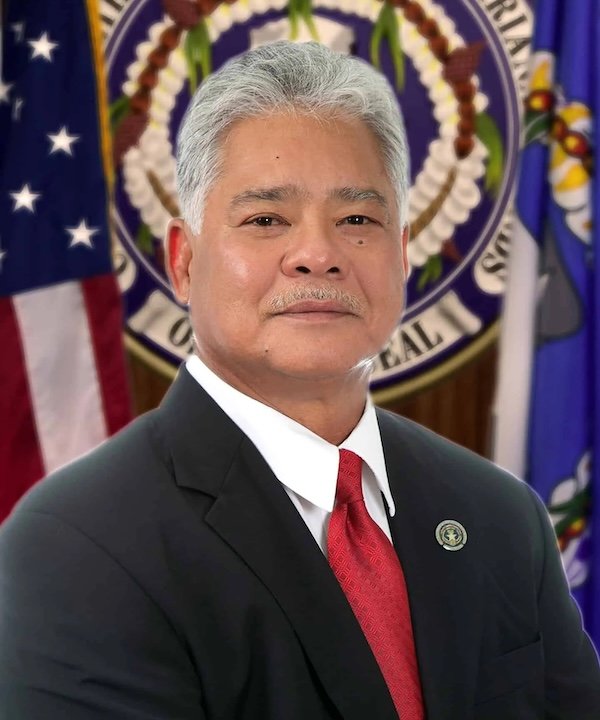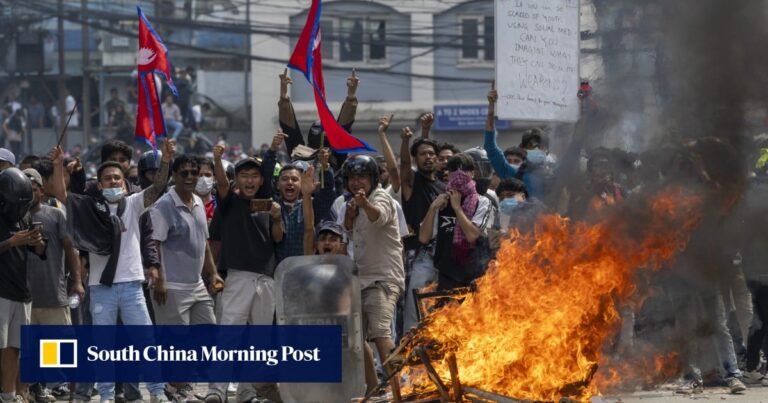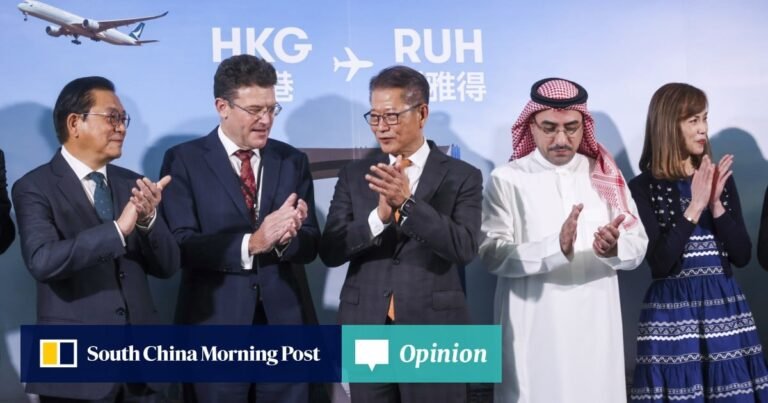Taking on China in the Pacific: Target corruption or don’t bother
I spent many years investigating corruption in Asia. But it’s the same everywhere. It destroys economies, societies, and the citizens in them (other than the relative few in on the racket). It’s also part and parcel of China’s operating manual, and a weapon of war. China makes adept use of local corruption – sometimes even…
I spent many years investigating corruption in Asia. But it’s the same everywhere.
It destroys economies, societies, and the citizens in them (other than the relative few in on the racket).
It’s also part and parcel of China’s operating manual, and a weapon of war. China makes adept use of local corruption – sometimes even creating it, but always capitalizing on it to create pro-China constituencies that promote and defend Beijing’s interests in a target country.
And that provides broader openings for Chinese political warfare and subversion and, if necessary, its waging of kinetic war.
And it’s not just so-called third world countries.
Take a look at Washington, DC.
Ask yourself: How is it that Chinese-origin fentanyl has killed well over half a million Americans since 2013 – and Beijing has suffered no punishment from the US Government?
In Washington’s case it’s corruption wrapped up as statesmanship.
Read Peter Schweizer’s Blood Money: Why the powerful Turn a Blind Eye While China Kills Americans and his other books. Best-sellers, they lay out a prosecutor’s brief. And nobody sues Schweizer. That says it all.
But let’s head back to the Pacific and, in particular, the Commonwealth of Northern Marianas (CNMI) .
CNMI is a US territory and its people are US citizens.It is also strategic terrain where the US military is repositioning itself, to include building new airbases and facilities on the CNMI island of Tinian.CNMI is the closest land to US bases on Guam – only 60 miles away. It’s an eight-hour flight west of Hawaii and a three-hour flight south of Tokyo.
China is keen to have influence and a presence in CNMI – and weaken the commonwealth’s ties with the US – and it has made considerable progress.
Chinese-linked corruption in CNMI didn’t just open the door in CNMI, it blew a hole in the defensive wall of the US, including being the only part of the US where Chinese can arrive without a visa.
Chinese casino money spread far and wide in CNMI’s political class
The former Chief Justice of CNMI’s Supreme Court once despaired that the territory seemed to have the highest per capita rate of official corruption of any place on earth.
Starting in the 2010’s a Chinese casino run by Imperial Pacific International (IPI) moved tens of billions of dollars through a handful of tables in a small casino duty-free mall while spreading cash all over the island – to include politicians and officials. Such casinos don’t operate without Chinese Communist Party backing.
Then-governor Ralph Torres’s family reportedly made a fortune signing overpriced leases with IPI.
IPI went bust a couple years ago, but another questionable Chinese company has picked up its assets. Other casinos – brick and mortar and online – are coming.
It’s not as if casinos and corruption weren’t on speaking terms.And CNMI’s casino commission is not a model of transparency or prudence.And, as it happens, former Governor Torres’s uncle chairs the commission.
$1.6 billion in Federal money vanishes
The late CNMI Governor Arnold Palacios came into office in 2023, replacing Ralph Torres. Palacios was determined to clean up the corruption. He testified before the US Senate Committee on Energy and Natural Resources as follows:
I entered an office that had been literally stripped of all furniture and equipment by my predecessor. But far more troubling than that, I found the government’s finances in complete disarray.

He later said that, during the Torres administration, $1.6 billion in Federal funding given to the CNMI (population around 50,000) hadn’t been properly accounted for.That’s a lot of money to “disappear” in a small place, and with very little to show for it. And it’s not easy to hide. Governor Palacios begged the US government to send investigators and accountants to examine corruption and Chinese influence in CNMI.
His last known attempt was an April 24, 2025 letter in which he asked that a message be sent to FBI Director Kash Patel requesting “intensive investigations of public corruption” in CNMI, adding he had “considerable evidence” to provide.
On July 1, the FBI sent a letter saying it was closing an existing years-long investigation into former Governor Torres and the Chinese casino.
The company that ran the Chinese casino had a former FBI director as an advisor and a former CIA director on its board.One hopes the Ruling Class Protective Association didn’t encourage Kash Patel to stand down.
On July 23, Governor Palacios died.
Since then, no CNMI representatives have asked the federal government for investigations into corruption in CNMI.
Beneficiaries of corruption move to positions of influence
One beneficial aspect of Chinese corruption (from China’s perspective) is the likelihood the people you support step into position of power and influence.That’s happened.
Angel Demapan is former chief of staff to CNMI Governor Ralph Torres.He also helped draft legislation that eased the entry of the Chinese casino into CNMI and is known to have taken money from that same Chinese casino to support his personal political aspirations.
All these ties to Chinese companies haven’t negatively affected Demapan’s job prospects. He is currently deputy assistant secretary of insular and international affairsat the Department of Interior, the US agency responsible for handling not just CNMI affairs, but also those with Guam, Palau, Marshall Islands and Federated States of Micronesia – places of fundamental importance to US national security. How he passed the vetting is a mystery.
China and Chinese tourism – CNMI economy’s magic solution
The successful influence of the pro-China lobby has also meant that CNMI is now the only part of the US that lets Chinese arrive without a visa.With unnatural insistence, those who want weakly vetted Chinese coming into the US – including CNMI’s representative in Congress – present China as CNMI’s economic salvation.
When I did the corruption work, we always suspected that whenever a banker was pushing a deal too hard, or insisting on a particular customer as the only option, something was amiss.And it always was.
The problem of corruption and Chinese influence in CNMI undercuts US interests not just for the citizens of CNMI but for US military plans for the region – a region core to the Trump administration’s concept of hemispheric defense.
Doing something about it is not hard.It just takes some effort.
What to do and who should do it
First, US Treasury should launch a task force on the $1.6 billion funds given to CNMI that have yet to be fully audited. Some CNMI officials suggest its just “the culture” and Washington should let bygones be bygones – and provide even more money. The honest people of CNMI who have been risking much to fight corruption would disagree.
Second, the FBI should stand up a task force on Chinese-linked gambling in CNMI. (It has reams of documents on this already, since FBI search warrants were executed in the late 2010s on the Chinese casino and then-Governor Torres.) And look at new online gambling and digital currency operations, too.
Both of the aforementioned investigationsneed to be done by people from outside the region and should include assessments of the performance of local Treasury, FBI and Judiciary employees during the period in question – and currently.
Third, those in key positions involved in shaping US policy in CNMI, including at the Department of Interior and Joint Task Force Micronesia, should have to pass in-depth background checks, with special attention paid to links to corruption and foreign influence.
From my experience, there’s no such thing as a little bit of corruption.As we knew, well you don’t associate – not even socially – with tainted individuals.You’re either clean or you’re not.
Fourth, and finally, Department of Homeland Security should require all Chinese coming to CNMI to have visas, just as Chinese do when they come to anywhere else in the United States.
Prominent US congressmen, claiming to be ‘tough on China’, have in fact supported visa-free entry.Maybe they were just trying to help a colleague with a favor without knowing the details. Either way, Beijing is happy.
This is all a prerequisite to blocking some of the Chinese operations fueling local corruption.Then you can start building a viable CNMI economy.
But if the US government won’t go after corruption, it should expect to lose in CNMI and the Pacific.
Grant Newsham is a retired US Marine officer and former US diplomat.He’s a fellow at the Center for Security Policy and the Yorktown Institute, and is the author ofWhen China Attacks: A Warning to America. Follow on X @NewshamGrant







